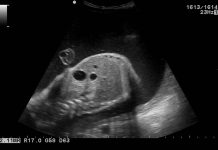There are currently many legal claims against baby formula manufacturers by parents of prem babies who have been severely affected by NEC after being given cow’s milk-based baby formula as a supplement. In particular, the makers of Enfamil and Similac formulas are being targeted due to their failure to warn parents of significant risk to premature babies of developing NEC (Necrotizing Enterocolitis).
What is Necrotizing Enterocolitis?
Necrotizing enterocolitis (NEC) is the most common gastrointestinal emergency in premature infants. This is because premature babies have a thinner than usual intestinal wall which is super sensitive. Therefore, the ingestion of baby formula based on cow’s milk can potentially cause inflammation of the intestinal wall and cause leakage of bacteria and toxins into the baby’s bloodstream.
In some cases, the wall can rupture, and waste material flows from the intestine into the surrounding abdomen. This can cause gangrene and severe infection, which is life-threatening.
At the very least, surgical intervention will be required.
Does Baby Formula Actually Cause NEC?
Although the exact cause of NEC in premature babies is not clear, feeding premature infants with artificial formula was linked to faster rates of growth but nearly doubled the risk of developing necrotizing enterocolitis.
It is clear from several scientific studies that the use of a baby formula based on cow’s milk in premature babies increases the risk of NEC, especially in babies weighing less than 2 pounds.
Some baby formula specifically manufactured for premature babies is bovine-based, despite the scientific evidence of the more significant risks of NEC. These manufacturers have failed to advise parents of the attendant risks and are now being held accountable.
Humans need the prebiotic called Oligosaccharides which are essential for gut health. Although Oligosaccharides are present in human breast milk, they are absent from baby formula based on cow’s milk. As a result, preterm babies don’t have the necessary prebiotics to safely digest bovine-based formula.
Some scientific studies have shown that, where Oligosaccharides have been supplemented to preterm infants, the incidence of NEC has been significantly reduced.
In addition, the bovine-based baby formula does not contain milk fat globule membrane (MFGM) as this process would prove costly. MFGM is responsible for the maturation and development of the baby’s gut allowing the baby to have strong digestion and better immunity during the first months of its life. The absence of MFGM has been linked to an increased incidence of NEC.
In 1990, a study published by Lancet found that NEC caused by baby formula supplementation may be 6 to 10 times more likely to develop NEC than prems fed by breast milk.
Why Are The Manufacturers Liable?
Manufacturers of baby formula products bear an obligation to thoroughly research their products and disclose the nature and extent of any risks to customers. Failure to do so may result in them being open to claims in damages for risks that eventuated.
Manufacturers have known for years that many scientific studies link NEC to bovine-based baby formula fed to preemies. These studies indicate that the risks are significantly more significant than if the babies were fed breast milk, donor milk, or formula made from breast milk.
What Can We Conclude?
Although NEC may not solely be caused by the ingestion of bovine baby formula by premature babies, many scientific studies prove that the chance of developing NEC after such ingestion is significantly increased. Conclusion: there are many legal proceedings instituted against hospitals and manufacturers, which suggests that many people feel that they have a claim. There is a likelihood of a class action soon, especially once a few awards are made.
References:
https://www.ncbi.nlm.nih.gov/pmc/articles/PMC5227976/
https://www.ncbi.nlm.nih.gov/pmc/articles/PMC4113601/













